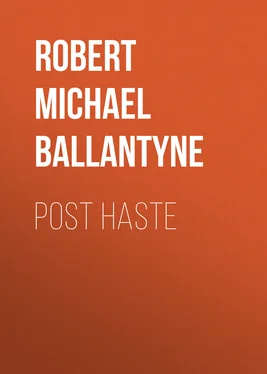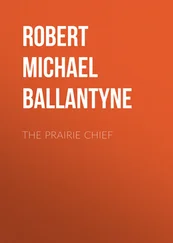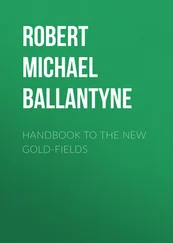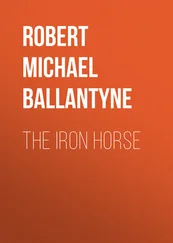Robert Michael Ballantyne - Post Haste
Здесь есть возможность читать онлайн «Robert Michael Ballantyne - Post Haste» — ознакомительный отрывок электронной книги совершенно бесплатно, а после прочтения отрывка купить полную версию. В некоторых случаях можно слушать аудио, скачать через торрент в формате fb2 и присутствует краткое содержание. Жанр: foreign_children, literature_19, foreign_antique, foreign_prose, на английском языке. Описание произведения, (предисловие) а так же отзывы посетителей доступны на портале библиотеки ЛибКат.
- Название:Post Haste
- Автор:
- Жанр:
- Год:неизвестен
- ISBN:нет данных
- Рейтинг книги:5 / 5. Голосов: 1
-
Избранное:Добавить в избранное
- Отзывы:
-
Ваша оценка:
- 100
- 1
- 2
- 3
- 4
- 5
Post Haste: краткое содержание, описание и аннотация
Предлагаем к чтению аннотацию, описание, краткое содержание или предисловие (зависит от того, что написал сам автор книги «Post Haste»). Если вы не нашли необходимую информацию о книге — напишите в комментариях, мы постараемся отыскать её.
Post Haste — читать онлайн ознакомительный отрывок
Ниже представлен текст книги, разбитый по страницам. Система сохранения места последней прочитанной страницы, позволяет с удобством читать онлайн бесплатно книгу «Post Haste», без необходимости каждый раз заново искать на чём Вы остановились. Поставьте закладку, и сможете в любой момент перейти на страницу, на которой закончили чтение.
Интервал:
Закладка:
Having been comforted with bread and treacle, and put to bed, the committee meeting was resumed.
“Well, then,” said Phil, consulting his paper again, “I give up the superannuation advantages. Then, as to wages, seven shillings a week, rising to eight shillings after one year’s service. Why, it’s a fortune! Any man at my age can live on sixpence a day easy—that’s three-and-six, leaving three-and-six a week clear for you, mother. Then there’s a uniform; just think o’ that!”
“I wonder what sort of uniform it is,” said Madge.
“A red coat, Madge, and blue trousers with silver lace and a brass helmet, for certain—”
“Don’t talk nonsense, boy,” interrupted Mrs Maylands, “but go on with the paper.”
“Oh! there’s nothing more worth mentioning,” said Phil, folding the paper, “except that boy-messengers, if they behave themselves, have a chance of promotion to boy-sorterships, indoor-telegraph-messengerships, junior sorterships, and letter-carrierships, on their reaching the age of seventeen, and, I suppose, secretaryships, and postmaster-generalships, with a baronetcy, on their attaining the age of Methuselah. It’s the very thing for me, mother, so I’ll be off to-morrow if—”
Phil was cut short by the bursting open of the door and the sudden entrance of his friend George Aspel.
“Come, Phil,” he cried, blazing with excitement, “there’s a wreck in the bay. Quick! there’s no time to lose.”
The boy leaped up at once, and dashed out after his friend.
It was evening. The gale, which had blown for two days was only beginning to abate. Dark clouds were split in the western sky by gleams of fiery light as the sun declined towards its troubled ocean-bed.
Hurrying over the fields, and bending low to the furious blast, Aspel and Philip made their way to the neighbouring cliffs. But before we follow them, reader, to the wave-lashed shore, it is necessary, for the satisfactory elucidation of our tale, that we should go backward a short way in time, and bound forward a long way into space.
Chapter Four.
The Royal Mail Steamer
Out, far out on the mighty sea, a large vessel makes her way gallantly over the billows—homeward bound.
She is a Royal Mail steamer from the southern hemisphere—the Trident —and a right royal vessel she looks with her towering iron hull, and her taper masts, and her two thick funnels, and her trim rigging, and her clean decks—for she has an awning spread over them, to guard from smoke as well as from sun.
There is a large family on board of the Trident , and, like all other large families, its members display marked diversities of character. They also exhibit, like not a few large families, remarkable diversities of temper. Among them there are several human magnets with positive and negative poles, which naturally draw together. There are also human flints and steels which cannot come into contact without striking fire.
When the Trident got up steam, and bade adieu to the Southern Cross, there was no evidence whatever of the varied explosives and combustibles which she carried in her after-cabin. The fifty or sixty passengers who waved kerchiefs, wiped their eyes, and blew their noses, at friends on the receding shore, were unknown to each other; they were intent on their own affairs. When obliged to jostle each other they were all politeness and urbanity.
After the land had sunk on the horizon the intro-circumvolutions of a large family, or rather a little world, began. There was a birth on board, an engagement, ay, and a death; yet neither the interest of the first, nor the romance of the second, nor the solemnity of the last, could check for more than a few hours the steady development of the family characteristics of love, modesty, hate, frivolity, wisdom, and silliness.
A proportion of the passengers were, of course, nobodies, who aspired to nothing greater than to live and let live, and who went on the even tenor of their way, without much change, from first to last. Some of them were somebodies who, after a short time, began to expect the recognition of that fact. There were ambitious bodies who, in some cases, aimed too high, and there were unpretending-bodies who frequently aimed too low. There were also selfish-bodies who, of course, thought only of themselves—with, perhaps, a slight passing reference to those among the after-cabin passengers who could give them pleasure, and there were self-forgetting-bodies who turned their thoughts frequently on the ship, the crew, the sea, the solar system, the Maker of the universe. These also thought of their fellow-passengers in the fore-cabin, who of course had a little family or world of their own, with its similar joys, and sins, and sorrows, before the mast; and there were uproarious-bodies who kept the little world lively—sometimes a little too lively.
As the Royal Mail steamer rushed out to sea and was tossed on the ocean’s breast, these human elements began to mix and effervesce and amalgamate, or fizz, burst, and go off, like squibs and crackers.
There was a Mrs Pods with three little girls, and a Mrs Tods with two little boys, whose first casual glance at each other was transmuted into a glare of undying and unreasoning hate. These ladies were exceptions to the rule of general urbanity before mentioned. Both had fiery faces, and each read the other through and through at a glance. There was a Miss Bluestocking who charmed some people, irritated others, frightened a few, and caused many to sneer. Her chief friend among the males was a young man named Mr Weakeyes, who had a small opinion of himself and a very receptive mind. Miss Troolove, among the ladies, was her chief friend. The strange misnomers which one meets with in society were also found in the little world in that steamer—that Royal Mail steamer we should say—for, while we turn aside for a brief period to condescend upon these particulars, we would not have the reader forget that they have an indirect bearing on the main thread of our tale.
One misnamed lady was a Miss Mist, who, instead of being light, airy, and ethereal, as she ought to have been, weighed at least twelve stone six. But she sang divinely, was a great favourite with the young people on board, and would have been very much missed indeed if she had not been there. There was also a Mr Stout, who was the tallest and thinnest man in the ship.
On the other hand there were some whose names had been obviously the result of a sense of propriety in some one. Among the men who were rabidly set on distinguishing themselves in one way or another was a Major Beak. Now, why was it that this Major’s nose was an aquiline of the most outrageous dimensions? Surely no one would argue that the nose grew to accommodate the name. Is it not more probable—nay, certain—that the name grew to accommodate the nose? Of course when Major Beak was born he was a minor, and his nose must have been no better than a badly-shaped button or piece of putty; but the Major’s father had owned a tremendous aquiline nose, which at birth had also been a button, and so on we can proceed backwards until we drive the Beaks into that remote antiquity where historical fact begins and mythological theory terminates—that period when men were wont, it is supposed, to name each other intelligently with reference to personal characteristic or occupation.
So, too, Mr Bright—a hearty good-natured fellow, who drew powerfully to Major Beak and hated Miss Bluestocking—possessed the vigorous frame, animated air, and intelligent look which must have originated his name. But why go on? Every reader must be well acquainted with the characters of Mr Fiery and Mr Stiff, and Mrs Dashington, and her niece Miss Squeaker, and Colonel Blare who played the cornet, and Lieutenant Limp who sang tenor, and Dr Bassoon who roared bass, and Mrs Silky, who was all things to all men, besides being everything by turns and nothing long; and Lady Tower and Miss Gentle, and Mr Blurt and Miss Dumbbelle.
Читать дальшеИнтервал:
Закладка:
Похожие книги на «Post Haste»
Представляем Вашему вниманию похожие книги на «Post Haste» списком для выбора. Мы отобрали схожую по названию и смыслу литературу в надежде предоставить читателям больше вариантов отыскать новые, интересные, ещё непрочитанные произведения.
Обсуждение, отзывы о книге «Post Haste» и просто собственные мнения читателей. Оставьте ваши комментарии, напишите, что Вы думаете о произведении, его смысле или главных героях. Укажите что конкретно понравилось, а что нет, и почему Вы так считаете.












